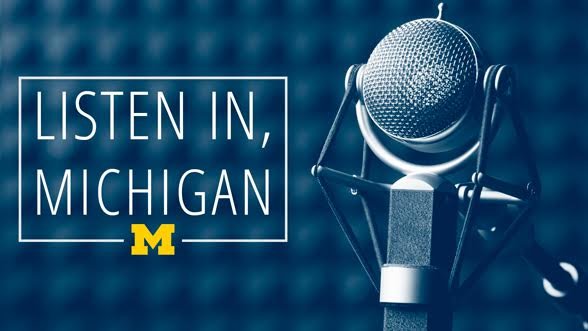Fighting the good fight for a free press
 I spoke with Michigan Today about "fake news," propaganda, and attacks on the press. You can listen to the full interview here:And here's more from Michigan Today:
I spoke with Michigan Today about "fake news," propaganda, and attacks on the press. You can listen to the full interview here:And here's more from Michigan Today:
Throughout his career as a reporter, author, and civil liberties advocate, Potter has focused on how governments silence free speech and dissent. His work has appeared in The Washington Post, National Geographic, and Rolling Stone, among many others, and he relishes an adversarial relationship to people in power. But this battle with the Trump administration is something new – and dangerous — as he notes in this latest episode of “Listen in, Michigan.”One of the most sinister possible outcomes of this conflict, he says, is the self-fulfilling prophecy in which the administration baits the media into becoming its own worst enemy.“It’s difficult to disengage from the news cycle and not follow every terrible bit of news that keeps coming out, especially as it relates to the press,” says Potter. “But at the same time, I think that’s what we need now, more than ever: a bit of restraint, patience. We need to step back and see the big picture, rather than being baited into responding quickly to every outrageous thing that happens.”That’s nearly impossible, though, thanks to our 24-hour television news cycle, a digital media landscape that demands up-to-the-second updates, and the nature of social media’s obsession with clickbait.Glass half full
What is “fake news” and how can you tell it from the real thing? Will Potter and two of his colleagues from Communication Studies will help sort it out during a University of Michigan Teach-out beginning April 21. Modeled after the historic U-M Teach-in of the ’60s, the online learning opportunity on edX is free and open to the public.But Potter struggles to remain optimistic: “I think we are entering an era where media outlets understand that consumers want more, and they’re capable of handling more,” he says. “Investigative reporting is not dead. And we’re seeing media outlets being willing to spend money on it. I am hoping this is a positive trend that — combined with these attacks on the press — is a good way to rile up reporters and get an adversarial press really moving again.”The bottom line is this, Potter says. “Across party lines, I hope, as a country, we could say that no matter what you object to that’s happening right now in the United States, the free press is not part of the problem. It has to be part of the solution.”

